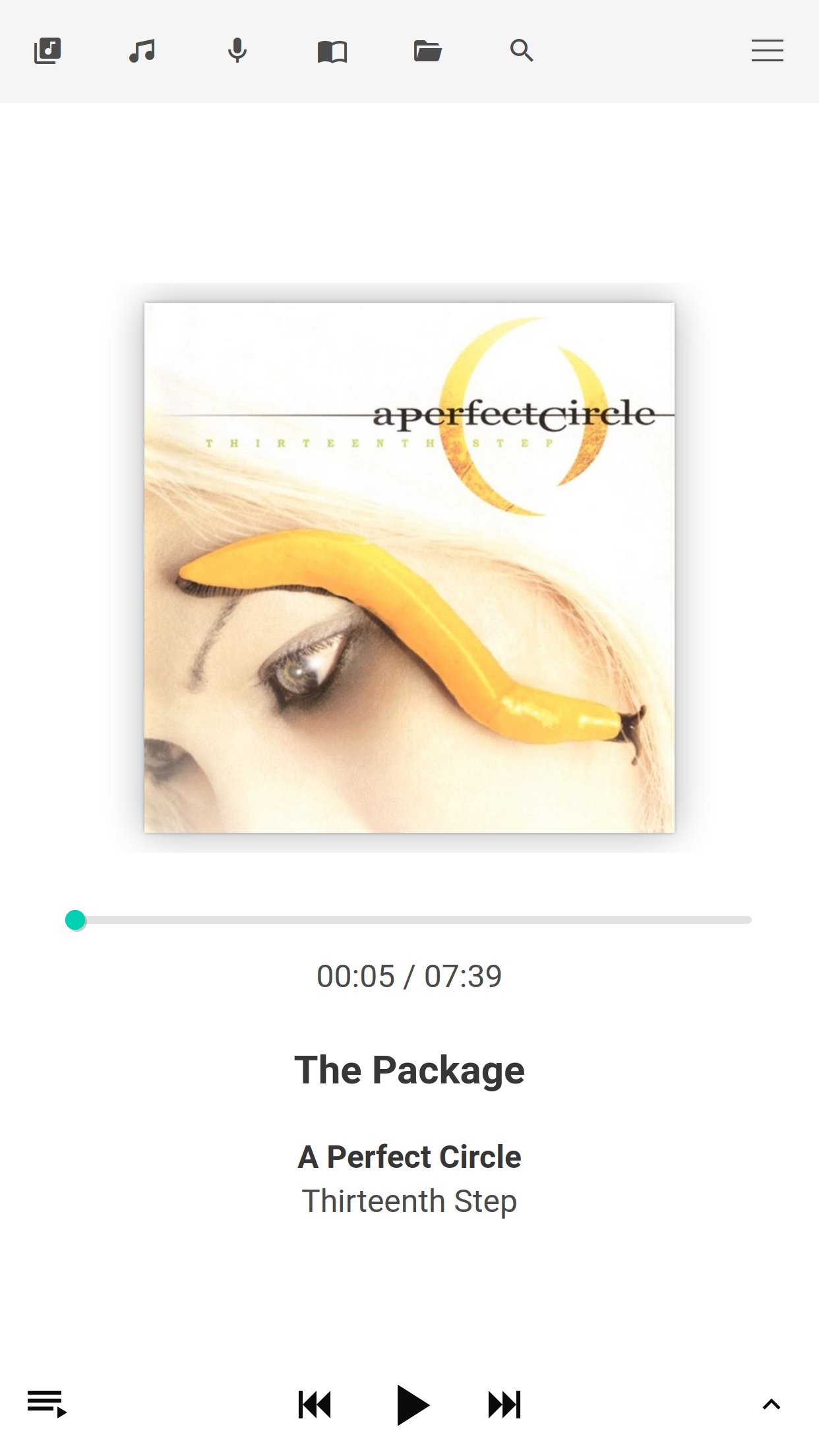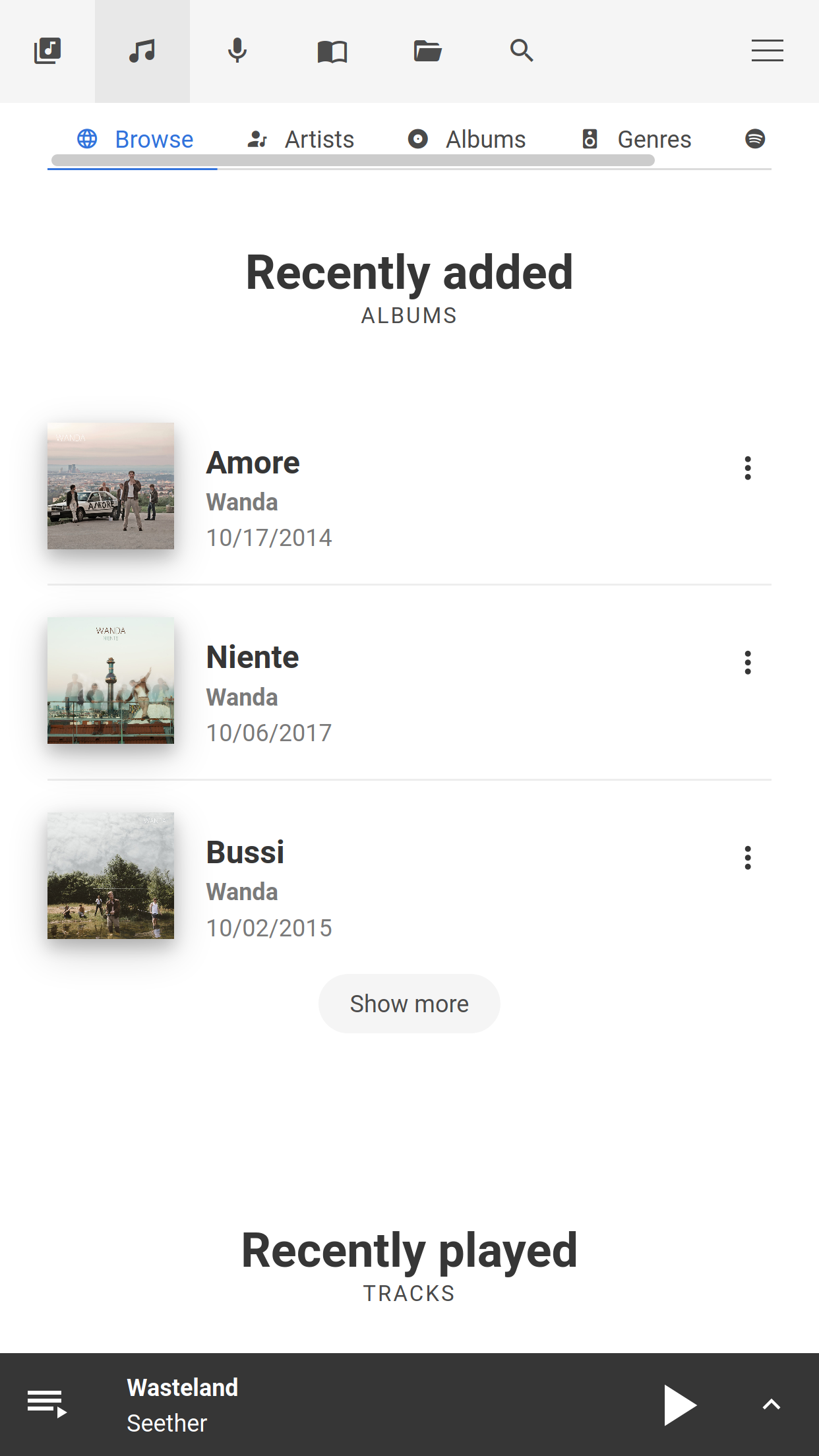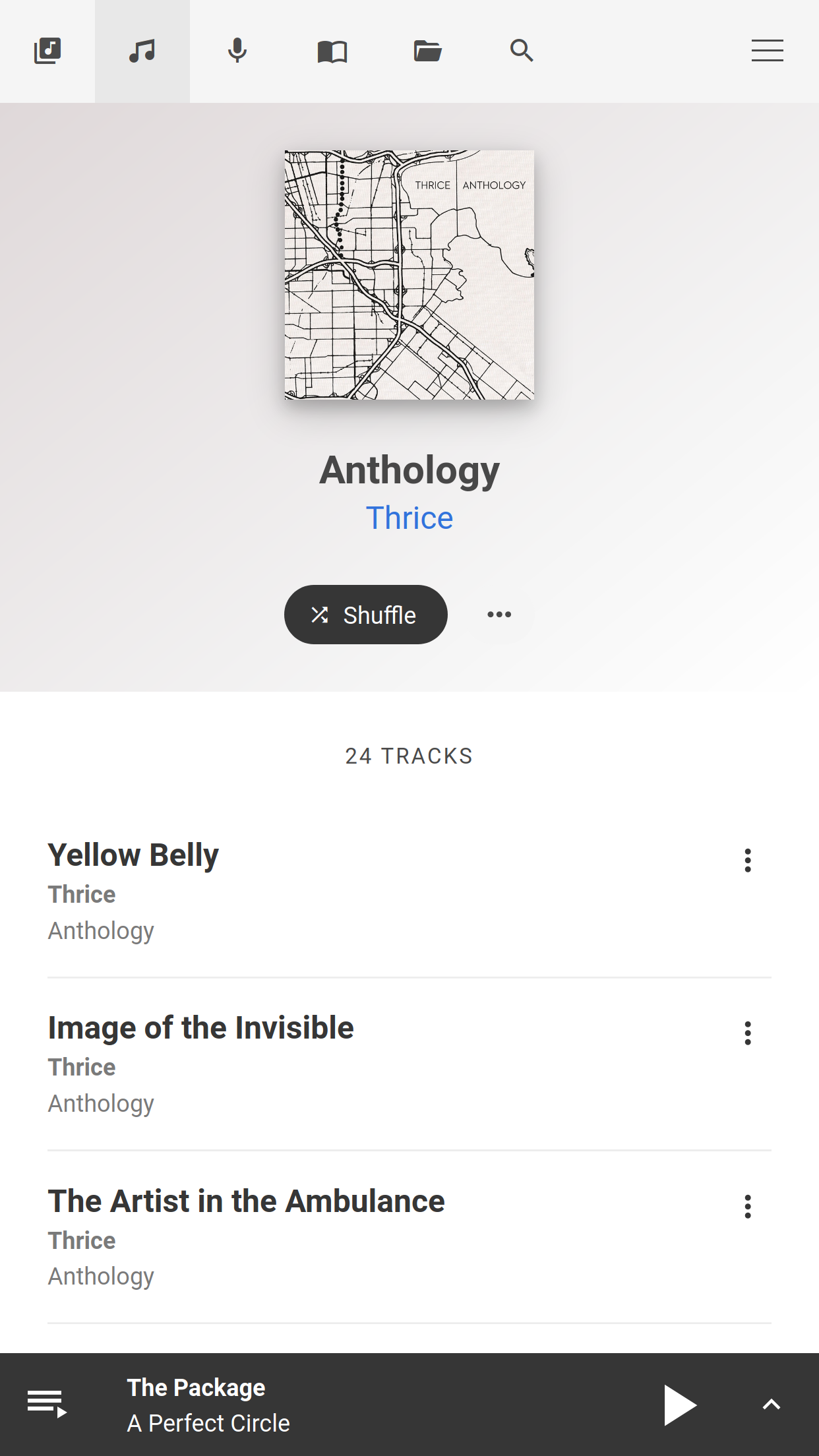OwnTone¶
OwnTone is an open source (audio) media server for GNU/Linux, FreeBSD and macOS.
It allows sharing and streaming your media library to iTunes (DAAP1), Roku (RSP), AirPlay devices (multi-room), Chromecast and also supports local playback.
You can control OwnTone via its web interface, Apple Remote (and compatible DAAP/DACP clients), MPD clients or via its JSON API.
Besides serving your local music, podcast and audiobook media files, OwnTone supports internet radios and Spotify (requires Spotify premium account).
Prior to version 28, OwnTone was called forked-daapd, which again was a rewrite of mt-daapd (Firefly Media Server).
OwnTone is written in C with a web interface written in Vue.js.
Features¶
- Stream to AirPlay (synchronized multiroom) and Chromecast devices
- Share local library with iTunes and Roku
- Local audio playback with ALSA or PulseAudio
-
Supports multiple different clients:
- Remote apps like Apple Remote (iOS) or Retune (Android)
- Integrated mobile friendly web interface
- MPD clients
-
Supports music and audiobook files, podcast files and RSS and internet radio
- Supports audio files in most formats
- Supports playing your Spotify library (requires Spotify premium account)
- Runs on low power devices like the Raspberry Pi



(You can find more screenshots from OwnTone's web interface here)
Looking for help?¶
Before you continue, make sure you know what version of OwnTone you have, and what features it was built with (e.g. Spotify support).
How to find out? Go to the web interface and check. No web interface? Then check the top of OwnTone's log file (usually /var/log/owntone.log).
Note that you are viewing a snapshot of the instructions that may or may not match the version of OwnTone that you are using.
If you are looking for help on building OwnTone (not using it), then please see the documentation on Building from Source.
References¶
You can find source and documentation, also for older versions, here:
-
DAAP stands for Digital Audio Access Protocol which is the protocol used by iTunes and friends to share/stream media libraries over the network. ↩